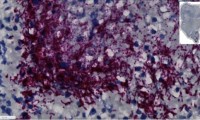-
Chemomab touts study confirming CCL24 link to systemic sclerosis severity
- Source: drugdu
- 301
- April 20, 2024
-
Image-Based AI Shows Promise for Parasite Detection in Digitized Stool Samples
- Source: drugdu
- 390
- April 19, 2024
-
Mouth Bacteria Test Could Predict Colon Cancer Progression
- Source: drugdu
- 314
- April 19, 2024
-
Eli Lilly Shows Obesity Drug Zepbound Can Treat Sleep Apnea Too
- Source: drugdu
- 334
- April 19, 2024
-
FDA Approves Stelara Biosimilar Selarsdi to Treat Psoriasis, Psoriatic Arthritis
- Source: drugdu
- 349
- April 19, 2024
-
Study reveals how specific nasal cells protect against COVID-19 in paediatric patients
- Source: drugdu
- 223
- April 19, 2024
-
ELRIG UK and SRG collaborate to advance life sciences professionals in drug discovery
- Source: drugdu
- 298
- April 19, 2024
-
ANKE Bio and SHIJIAN BIOLOGICAL enter into ADC platform technology licensing cooperation
- Source: drugdu
- 425
- April 19, 2024
your submission has already been received.
OK
Subscribe
Please enter a valid Email address!
Submit
The most relevant industry news & insight will be sent to you every two weeks.













